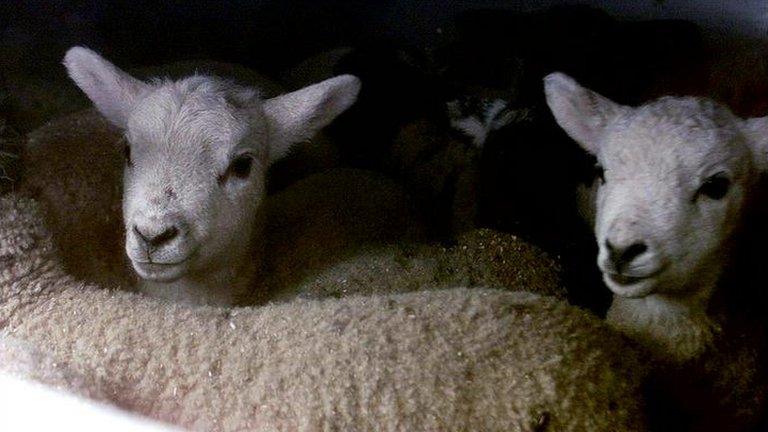Live animal export ban evidence call backed by Welsh minister
- Published
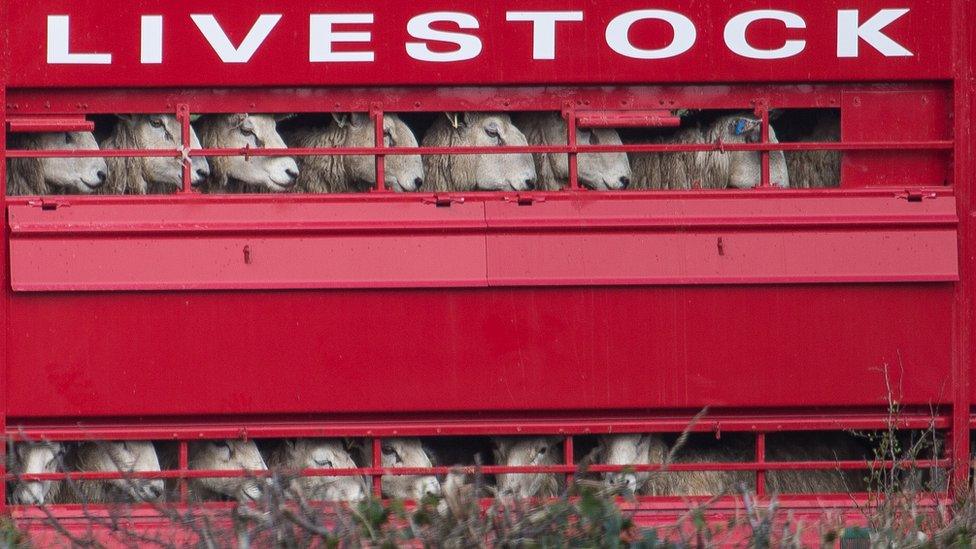
The export of live animals for slaughter is legal under EU single market rules
The export of live animals for slaughter could be banned after Brexit under plans put out for consultation.
Rural Affairs Secretary Lesley Griffiths said the Welsh Government preferred to see trade in meat for the sake of animal welfare.
Live exports cannot be currently banned due to EU single market rules.
The Farmers' Union of Wales (FUW) said it understood people's concerns, but said a ban would be "short-sighted", fearing EU tariffs of 50% on meat.
The call for evidence in support of a ban was launched on Tuesday by the UK and Welsh governments, while Scottish ministers have rejected the idea.
UK ferry companies stopped shipping live animals for slaughter in 2007, with just one private boat now transporting animals from Ramsgate, Kent.
The National Farmers' Union (NFU) estimates up to 20,000 live sheep - but no cattle - were exported to Europe in 2017.
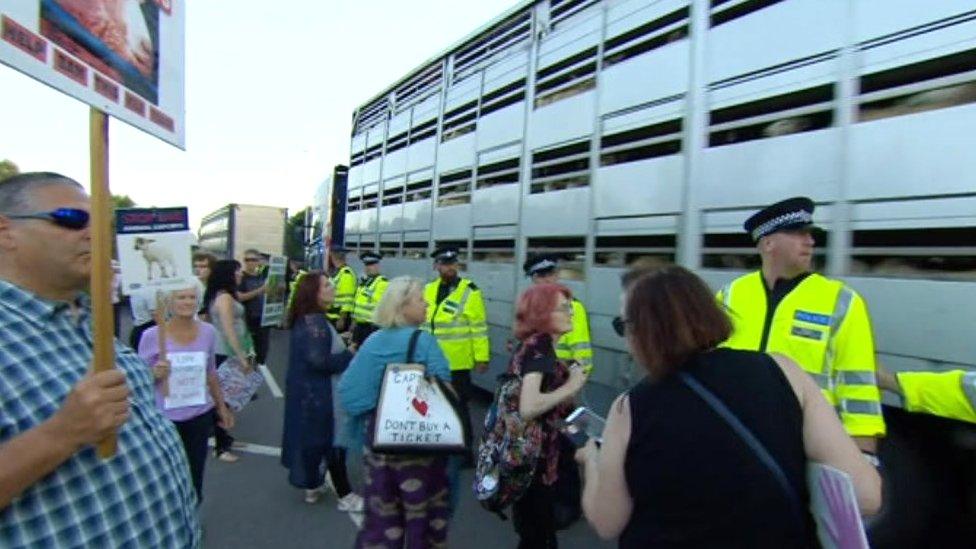
Live animal shipments from Ramgate, Kent, have been met with protests
Ms Griffiths said: "As a government, we are committed to ensuring high standards of welfare for all animals kept in Wales and our position on live exports for slaughter is clear.
"We would prefer for animals to be slaughtered as close as practicable to their point of production and consider a trade in meat and meat products to be preferable to long distance transport of animals to slaughter.
"That is why we are supporting the call for evidence on a UK-wide ban on the export of live animals for overseas slaughter."
FUW President Glyn Roberts claimed a ban would be a "massive own-goal".
"It would be remarkably short-sighted to introduce a ban on live exports at the same time as massive tariffs on meat exports to the EU might be introduced," he said.
"We fully appreciate people's concerns about live exports, but we must bear in mind that the EU has legal welfare standards which are the highest in the world, and these apply both here and on mainland Europe."
NFU Cymru livestock board chairman Wyn Evans said: "The live export of animals operates under stringent EU transport regulations which limits journey times and builds in frequent rest stops as required.
"It provides a legitimate and secure way to move livestock and is not a health nor a welfare issue if properly controlled."
- Published10 April 2018
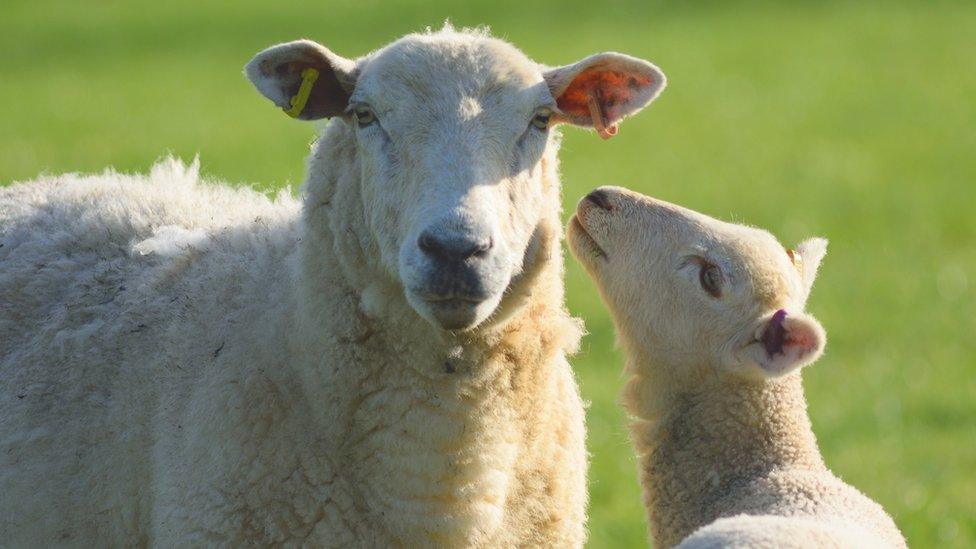
- Published5 February 2018

- Published20 December 2017

- Published18 September 2017
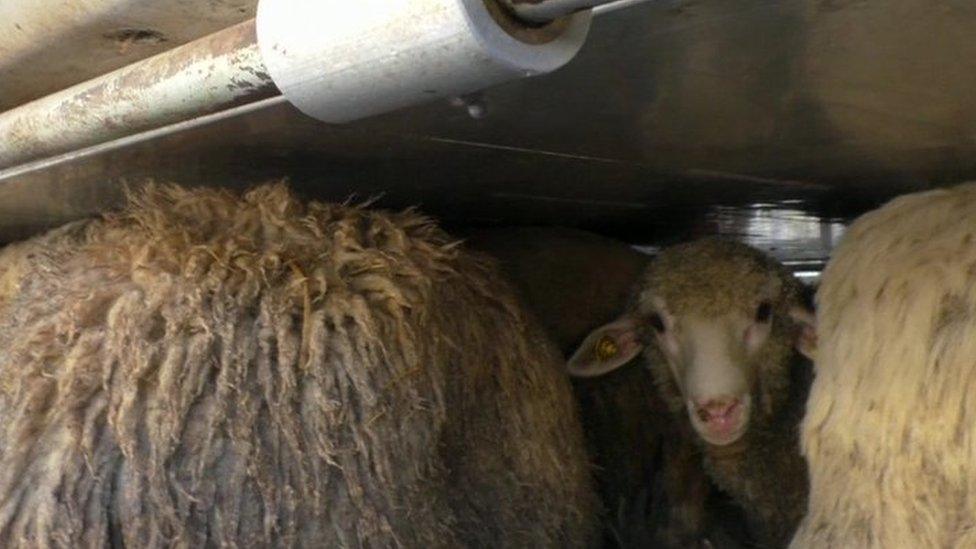
- Published21 July 2016
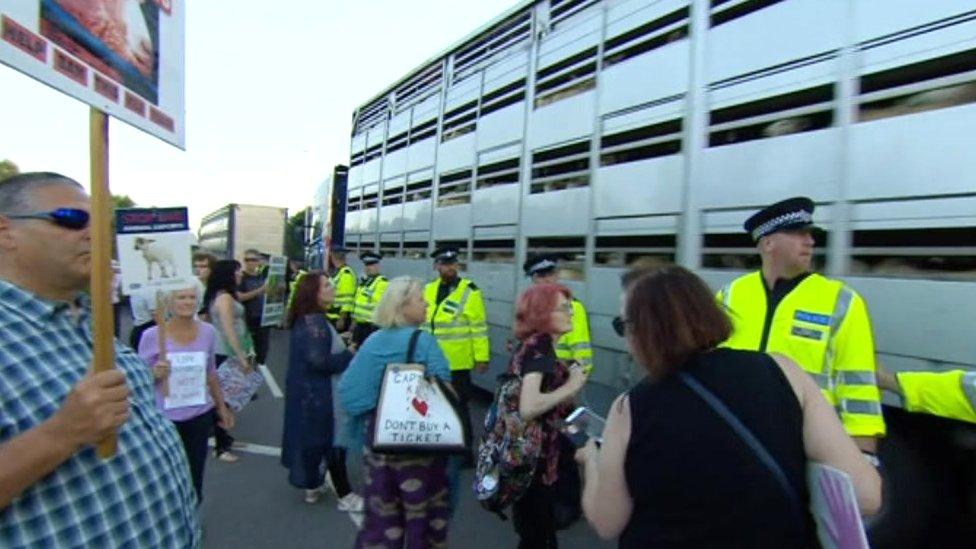
- Published27 February 2014
